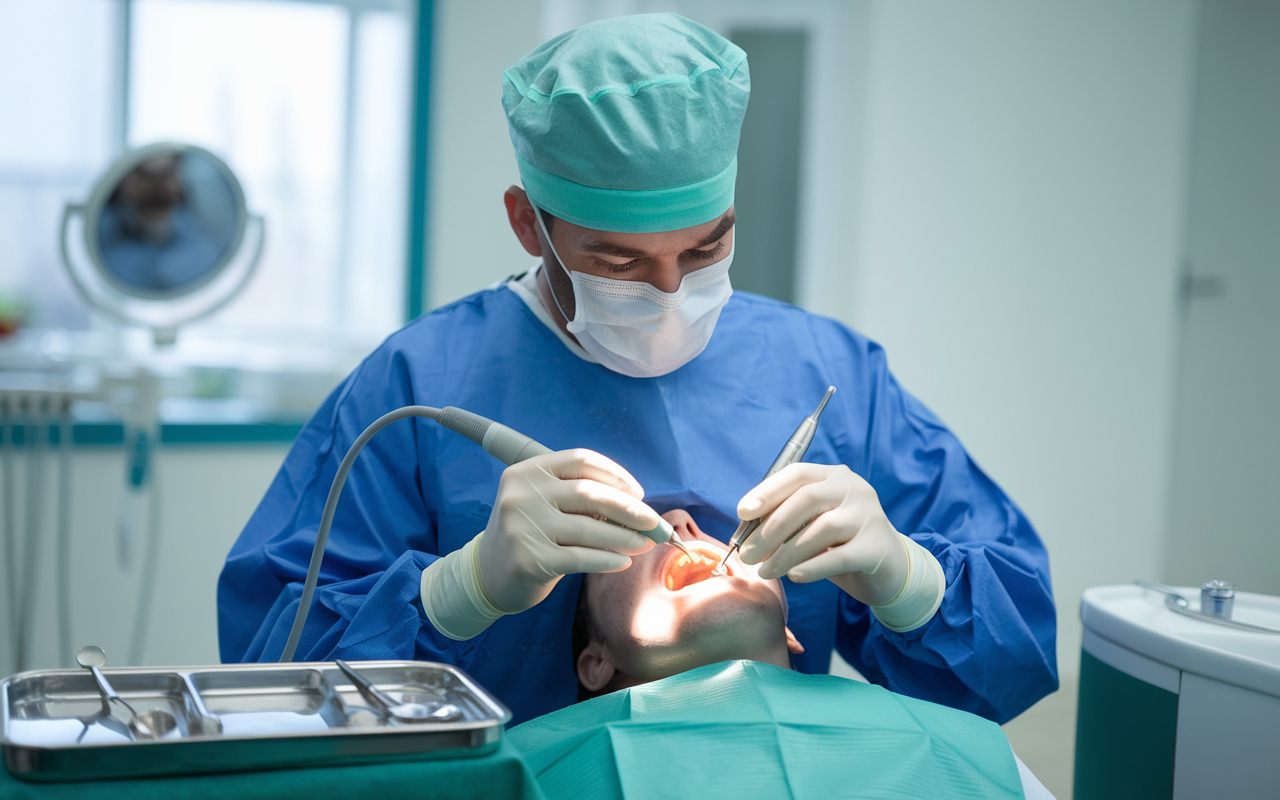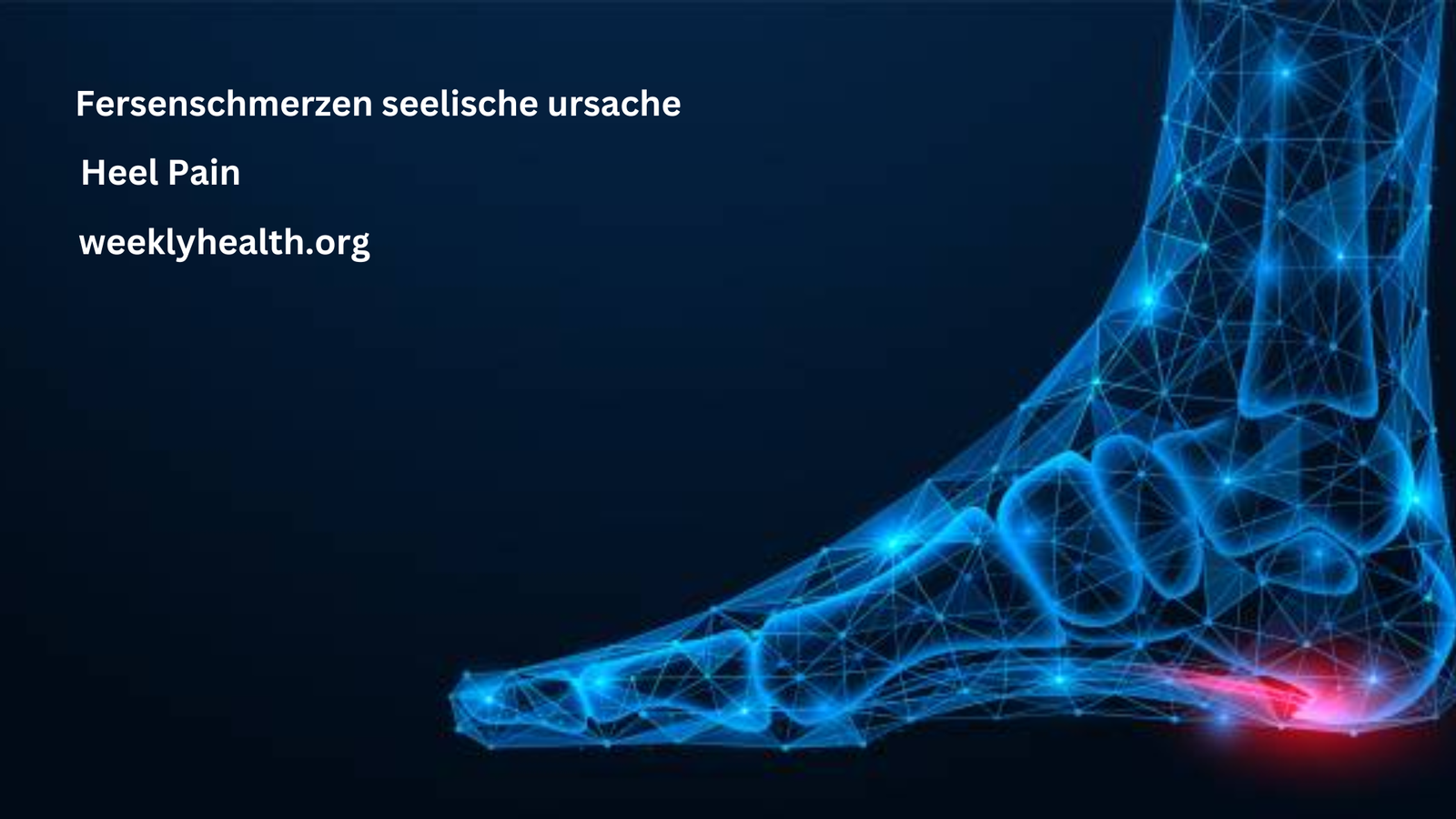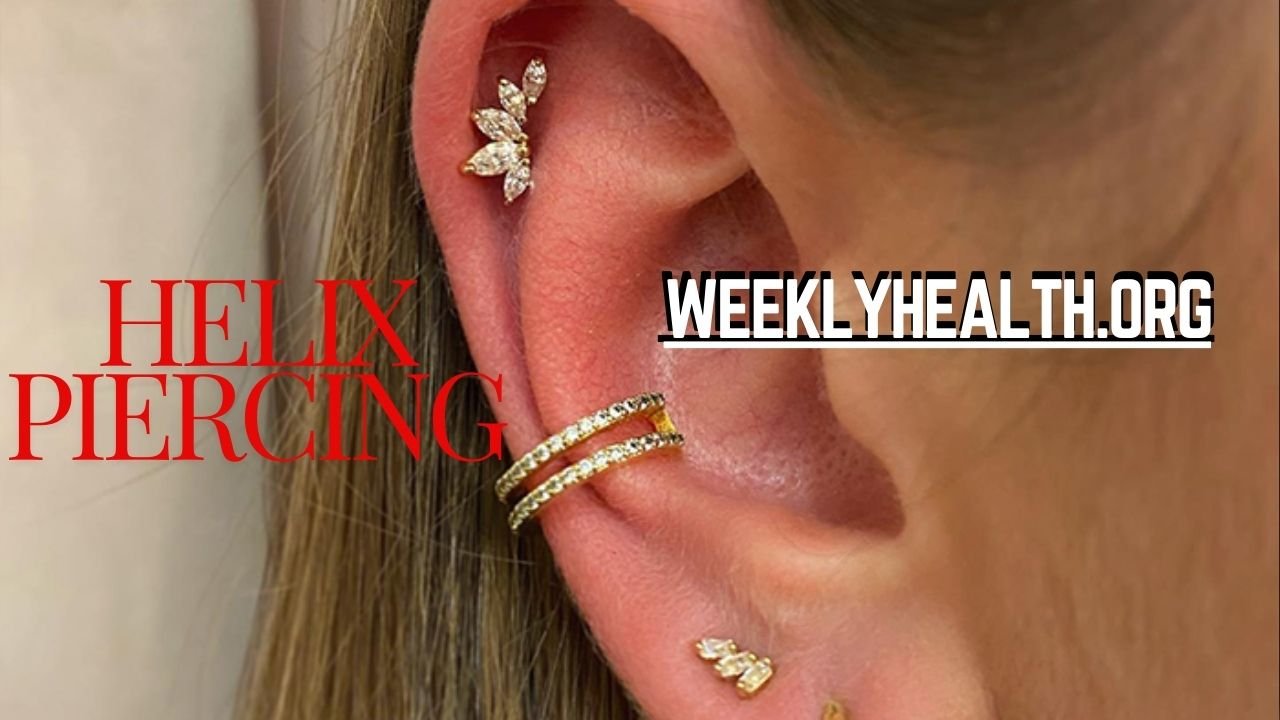Introduction
Full teeth extraction, or the removal of all teeth, can be a daunting experience for anyone. However, for patients with diabetes, the procedure becomes even more complex. This comprehensive guide will walk you through everything you need to know about full teeth extraction for diabetics, what a hospital stay entails, and how to manage the entire experience for optimal recovery. Let’s dive into the world of dental extractions for people with diabetes and explore the ins and outs of the hospital stay, with a focus on the impact of diabetes and the precautions needed.
Understanding Full Teeth Extraction
When it comes to full teeth extraction, dentists recommend this procedure only when necessary. It may become a requirement due to severe tooth decay, periodontal disease, infections, or trauma that leaves the teeth unsalvageable. For patients with diabetes, chronic gum disease is often a common cause leading to full teeth extraction. Diabetes slows down healing, impairs circulation, and can lead to infections, making teeth vulnerable to decay and gum diseases. Therefore, pulling out all teeth may become the only viable solution to avoid systemic infections that could worsen their health condition.

Diabetes and Oral Health: A Delicate Balance
There is an intimate connection between diabetes and oral health. The fluctuating blood sugar levels in diabetic patients can lead to higher risks of developing gum diseases, dry mouth, and infections. With poor glycemic control, small dental issues can quickly escalate into more serious problems, making regular dental visits critical. Moreover, the body’s healing process is slower in people with diabetes, making post-surgery care and hospital stays even more crucial after a full teeth extraction.
Pre-Procedure Planning for Diabetics
Before undergoing full teeth extraction, diabetic patients need to follow a specific plan to minimize risks. It involves consulting with both a dentist and an endocrinologist to manage the diabetes. Blood sugar levels need to be stabilized, and infections should be under control before the surgery date. Dentists often recommend a course of antibiotics to prevent any diseases, which is particularly important since diabetic patients are more prone to such complications.
Additionally, a proper assessment of the patient’s overall health, including heart health and kidney function, is necessary. For diabetic patients, everything becomes interconnected, and ensuring they are in optimal condition can significantly reduce complications. Patients may need to adjust their medications, fast for a short period, or plan for insulin regulation if required during the hospital stay.
What to Expect During the Procedure
Full teeth extraction is usually performed under local anesthesia or sedation, depending on the patient’s health and comfort level. For diabetic patients, ensuring stable blood sugar levels during the surgery is critical. Some hospitals may require an overnight stay to monitor glucose levels and prevent any complications during recovery. It is especially true if the patient has any other co-morbidities that need constant supervision.
During the procedure, the dentist will carefully remove all teeth while avoiding unnecessary trauma to the gums. In some cases, patients may receive sutures to close the gum tissues. Immediate dentures may be placed for cosmetic purposes, but this decision depends on the patient’s healing potential.
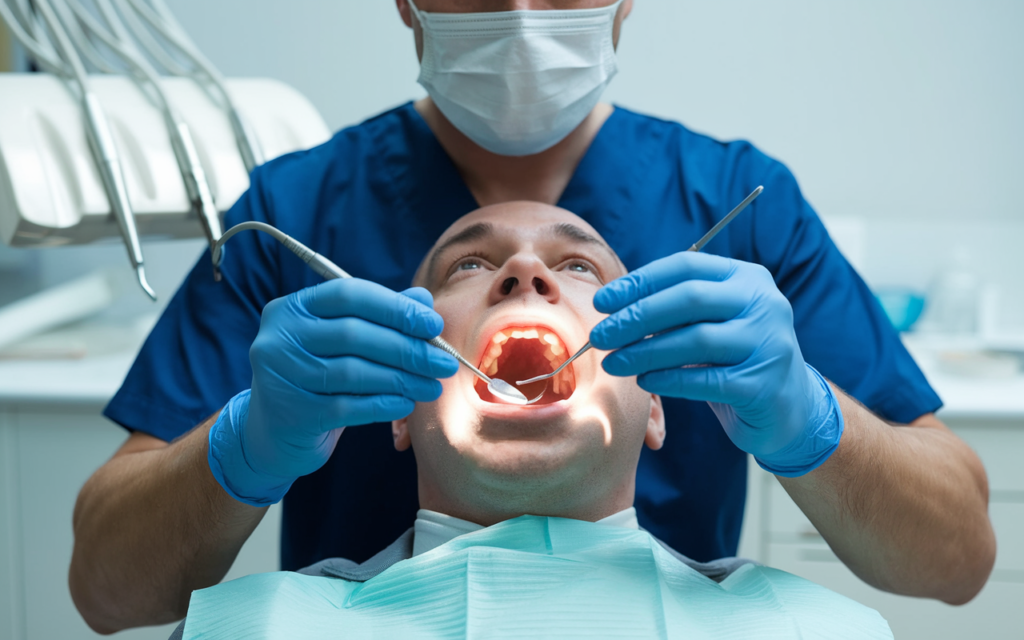
Hospital Stay for Diabetic Patients After Full Teeth Extraction
For diabetic patients, a hospital stay following full teeth extraction is often recommended to monitor their blood sugar levels and prevent any postoperative complications. Hospitals have specialized teams that focus on maintaining optimal glucose levels, especially since stress and trauma from the procedure can cause blood sugar spikes or drops. Nurses and doctors will monitor the patient’s healing process, check for infections, and ensure proper hydration, which is critical for diabetic patients.
Pain Management:
Pain management during the hospital stay is crucial, but it needs to be handled cautiously in diabetic patients. Some pain medications can interfere with blood sugar levels or react negatively with diabetic medications. Doctors usually recommend acetaminophen or non-steroidal anti-inflammatory drugs (NSAIDs) unless contraindicated. Stronger medications, such as opioids, may be used only under close supervision to avoid side effects like nausea,
dizziness, or increased blood glucose levels.
Diet and Nutrition:
Maintaining a proper diet during the hospital stay is vital for recovery. Diabetic patients are placed on soft, easily digestible foods to avoid disturbing the surgical site. Balanced nutrition helps keep blood glucose levels in check and supports healing. The hospital diet plan typically avoids high-sugar foods and ensures the patient is getting enough fluids to prevent dehydration.
Insulin Adjustments and Monitoring:
After full teeth extraction, stress-related changes can impact insulin needs. Hospitals keep track of blood sugar levels with frequent checks and adjust insulin doses as required. If the patient uses oral medications for diabetes, the doctors may decide to switch to insulin temporarily during the recovery period for better control.
Risks and Complications for Diabetics
Although full teeth extraction is a common dental procedure, it carries specific risks for diabetic patients. One major concern is delayed healing, which increases the risk of infection. Poorly controlled diabetes can lead to complications such as:
- Infections: Since people with diabetes are more prone to infections, the open wounds from extractions can easily become infected if not properly cared for.
- Dry Socket: This painful condition occurs when the blood clot at the extraction site dislodges or dissolves before the wound has healed.
- Increased Blood Sugar Levels: Surgical stress can cause hyperglycemia, which may need to be managed in a hospital setting.
- Slow Healing: Diabetic patients often experience prolonged healing times, which can complicate the recovery process.
Because of these risks, the hospital stay is essential for close monitoring, ensuring any developing problems are promptly addressed.
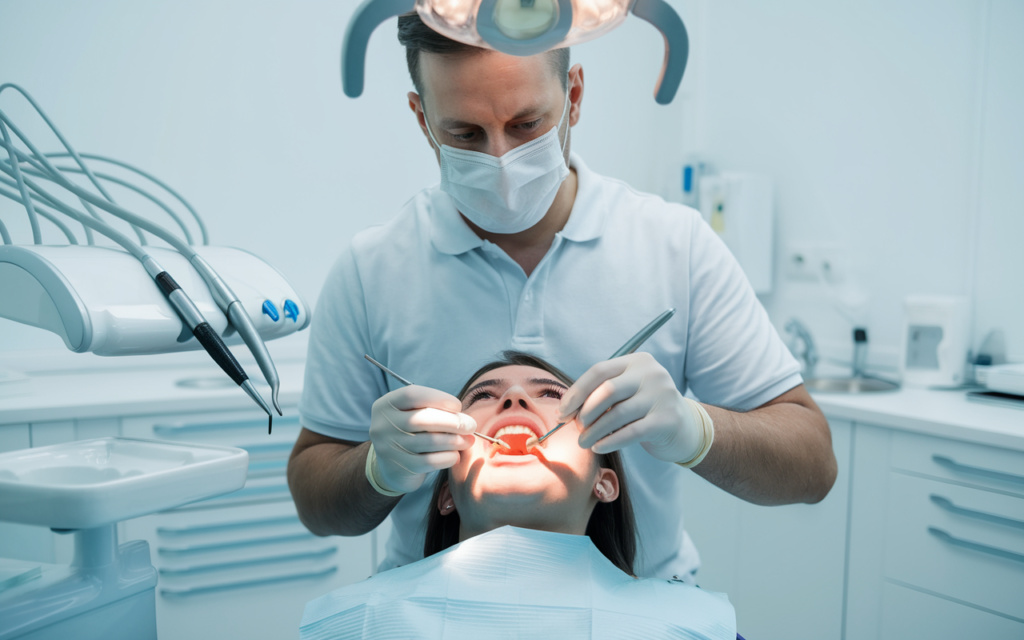
Managing Recovery After Hospital Discharge
Once discharged from the hospital, diabetic patients need to follow a strict postoperative care plan. Proper home care can significantly reduce complications and improve healing times. Here’s what the recovery period typically involves:
- Medications: Following the prescribed antibiotics and pain relief regimen is essential to avoid infections and manage pain.
- Mouth Rinsing: Using a saline or medicated rinse helps keep the surgical site clean and prevents bacteria build-up.
- Diet Management: Patients must continue with soft foods for the first few weeks to avoid trauma to the gums. Foods like soups, mashed vegetables, and smoothies are commonly recommended.
- Blood Sugar Monitoring: Patients should regularly check their blood sugar levels and consult their doctor if they notice unusual fluctuations.
- Follow-Up Appointments: Regular dental check-ups are necessary to monitor healing and address any issues, such as signs of infection or slow wound healing.
Tips to Promote Healing
Healing from full teeth extraction requires more attention when diabetes is involved.
- Maintain Good Oral Hygiene: Even without teeth, the gums and mouth need to be cleaned regularly to prevent infections.
- Control Blood Sugar Levels: Keeping blood glucose levels stable helps accelerate the healing process.
- Stay Hydrated: Proper hydration is critical for healing and managing blood sugar.
- Avoid Smoking and Alcohol: Both can delay healing and increase the risk of infection.
- Rest and Recovery: Getting enough rest allows the body to heal properly.
Psychological Impact of Full Teeth Extraction
Beyond the physical challenges, full teeth extraction can have a psychological impact on patients. Losing all teeth may affect one’s self-confidence and social interactions. For diabetic patients who already deal with chronic health issues, the additional emotional stress can feel overwhelming. Hospitals often provide counseling services or support groups to help patients cope with these changes.
Many patients opt for dentures or implants after healing, but it’s essential to wait until the gums have fully healed. Diabetic patients must consult their dentist and endocrinologist before moving forward with any further dental work to ensure everything aligns with their health needs.
Conclusion
Full teeth extraction for diabetic patients is a complex procedure that requires careful planning, close monitoring, and specialized postoperative care. A hospital stay after the surgery ensures that blood sugar levels are managed, infections are prevented, and the patient recovers smoothly. While there are risks involved, with the right care and management, diabetic patients can heal successfully and regain their quality of life.
Ultimately, the key to a smooth recovery lies in preparation, ongoing communication with healthcare providers, and following a detailed post-surgery care plan. With these elements in place, diabetic patients can navigate the challenges of full teeth extraction and hospital recovery, returning to their normal routines without unnecessary complications.
